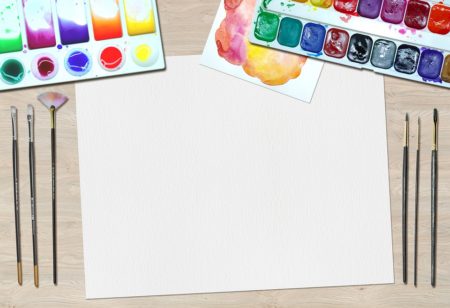Counselling/Therapy
Personal counselling is an intentional interpersonal relationship used by trained personnel to aid a client or patient in problems of living. Many Sisters are involved in the various types of new therapies now commonly practised:
• Art Therapy
• Play Therapy
• Music Therapy
• Family Therapy
Art Therapy

Art therapy is a creative way of expressing and communicating thoughts and feelings through drawing, clay modelling or painting.
Working with art materials helps us to understand in a positive way different ways of communicating feelings that are hard to explain or put into words.
Family Therapy
Systemic family therapy is a particular psychotherapy approach which focuses on the family even if working with just one member.
It takes into account that the family system is made up of individuals who interact and are interdependent and the therapist intervenes in the system through using a family perspective. The systemic family therapist also deals with the wider contexts of peoples lives which could be social, religious, political or cultural.
Music Therapy
“Music Therapy is the use of sounds and music within an evolving relationship between client and therapist to support and encourage physical, mental, social and emotional well-being” L Bunt
It is the process rather than the outcome that is most important in music therapy, therefore, the musical elements of sound are used and developed creatively through improvisation and structured musical activities.
The purpose/goal is to provide a safe space where music improvisation and activities can be used with individuals or groups to explore various issues or difficulties for the benefit of the client.

The emphasis is on using music rather than on learning therefore it is irrelevant how skilled the clients are. There is no right or wrong in music therapy and this in itself gives a freedom to clients to explore their own feelings or sounds.
Music therapists work with adults and children in hospitals, hospices, prisons, mainstream and special education, day care and residential centres, rehabilitation and addiction organisations and in private practice. In many of these facilities music therapists work as members of a team with other professional e.g. speech and language therapists, occupational therapists, physiotherapists, play, art, drama, and dance therapists as well as members of the social, medical and educational faculties.
As music therapy becomes more recognised and understood, a wider range of client groups is emerging: music therapists continue to work in important areas where there are chronic difficulties in communication.
Play Therapy
Play therapy is getting more popular in Ireland of late. It is based on the principles of Virginia Axline. “It is a chance to come here and talk and play anyway you want to. It’s a time when you can be the way you want to be. A time you can use anyway you want to use it. A time you can be you.”

A child is usually referred when s/he is perceived as having/being a problem. To me there is no such thing as a problem child but a child who has problems. Play therapy focuses on children’s need to express themselves through the use of toys. In play therapy children are provided with play media – toys, art, sand, clay, puppets, toys for dramatic and fantasy play through which they recreate the emotional experience they are struggling with.
It looks like fun and it is. For children play is also work. For a child there is no distinction between work and play – play is a child’s work. Play is a child’s means of discovery, of communication and expression.
Education | Parish Ministry | Spirituality | Healthcare
Counselling/Therapy | Chaplaincy | Visitation
Addiction Services | Ecology | Social Services | Provincial Ministry


